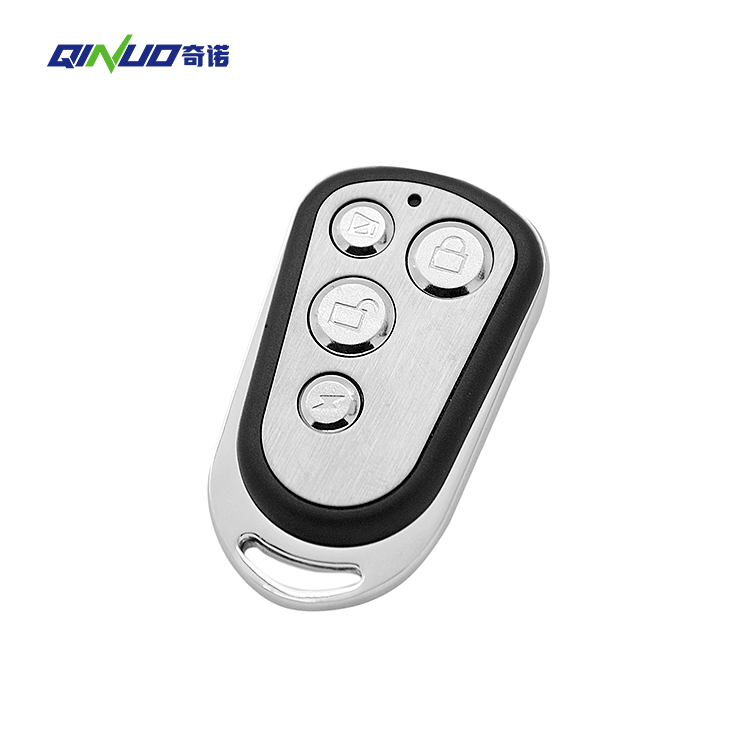Replacing a garage door remote can seem like a straightforward task, but it can present several compatibility challenges that need to be addressed to ensure smooth operation. Whether you’re upgrading to a new model, replacing a lost remote, or integrating with a smart home system, understanding these potential issues can save you time, frustration, and money. Here’s a detailed guide on the potential compatibility issues you might encounter when replacing a garage door remote.

1. Frequency Mismatch
One of the most common compatibility issues arises from a mismatch in frequency. Garage door openers operate on specific radio frequencies, commonly 300 MHz, 310 MHz, 315 MHz, and 390 MHz. If your new remote does not match the frequency of your garage door opener, it will not communicate effectively, rendering it useless. To avoid this, check the frequency of your current system and ensure the replacement remote is compatible.
2. Different Coding Systems
Garage door openers use different coding systems to transmit signals between the remote and the opener. The most common systems are:
Fixed Code: Older garage door openers often use fixed codes, where the remote and opener communicate using a specific, unchanging code.
Rolling Code: Modern systems typically use rolling codes, which generate a new code each time the remote is used, enhancing security by making it harder for potential intruders to intercept the signal.
If your garage door opener uses rolling codes, a remote designed for fixed codes will not work, and vice versa. Verify the coding system of your opener before purchasing a replacement remote.
3. Brand and Model Compatibility
Garage door opener brands and models can have unique communication protocols. While some universal remotes claim compatibility with multiple brands, others are specific to particular manufacturers. It’s essential to confirm that the replacement remote is compatible with the brand and model of your garage door opener. Check the manufacturer’s specifications or consult with a professional to ensure compatibility.
4. Smart Home Integration
For those integrating their garage door opener with a smart home system, compatibility issues can arise if the new remote or opener is not supported by your smart home platform. Ensure that the remote and the opener are compatible with your smart home hub (e.g., Amazon Alexa, Google Home, Apple HomeKit) and that they can communicate seamlessly with other connected devices.
5. Programming and Setup Challenges
Even when you have the correct frequency and coding system, programming the new remote can present challenges. Some systems require a specific sequence of button presses or the use of a programming button on the garage door opener unit. The difficulty of programming can vary between models and brands, and without proper instructions, you might find it challenging to pair the new remote with your opener.
6. Battery Type and Power Issues
Compatibility issues can also arise from differences in battery type and power requirements. Ensure that the new remote uses the same type of battery as the old one or that it has the appropriate power capacity to function correctly. Using the wrong battery type can lead to poor performance or damage to the remote.
7. Signal Interference
Signal interference from other wireless devices in your home, such as Wi-Fi routers, baby monitors, or cordless phones, can affect the performance of your garage door remote. If the new remote operates on a frequency that is heavily used in your home environment, you may experience issues with signal transmission. In such cases, a remote with a different frequency or a system that uses advanced signal filtering may be necessary.
Conclusion
Replacing a garage door remote involves more than simply buying a new device; it requires careful consideration of several compatibility factors. By understanding potential issues such as frequency mismatches, different coding systems, brand-specific requirements, smart home integration, programming challenges, battery types, and signal interference, you can make an informed decision and ensure a smooth replacement process. Taking these factors into account will help you avoid common pitfalls and enjoy seamless operation of your garage door system.

-
Office ViewQinuo Electronics Co., Ltd.was founded in 2009,it is a high-tech company that integrated R & D, manufacturing, sales and service for 15 years,which is mainly specialized in providing sensors of automatic door, control system of door and gate, car key remote, auto parts etc. The company currently has four independent brands: U-CONTROL, U-SENSORS, U-AUTOGATES and U-AUTOKEYS.
-
got questions? call us
+86 13960286508
-
fax :
+86 595 22901208 -
Email :
[email protected]
-
address
- No.991 Xingxiu Road,Taiwanese Investment Zone, Quanzhou, Fujian Province,P.R.China











